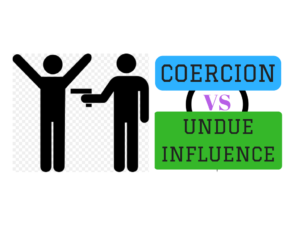Assault and battery are two legal terms that are often used interchangeably, but they actually have distinct meanings and implications. In this article, we will explore the differences between assault and battery, including their definitions, examples, uses, and various areas where they differ.
What is Assault?
Assault is generally defined as intentionally causing apprehension or fear of harmful or offensive contact. It is important to note that physical contact is not necessary for an act to be considered assault; it is the threat of harm that constitutes the offense. Here are a few examples of assault:
1. Verbal Threats: A person making explicit threats of physical harm to another individual without touching them.
2. Displaying a Weapon: If someone points a gun at another person, even without pulling the trigger, it can be classified as assault.
3. Raising a Fist: Attempting to strike someone but missing or being stopped before the physical contact is made.
The Uses of Assault:
Assault can be used as a criminal charge in legal proceedings involving physical harm, property damage, or fear of bodily harm. It serves as a deterrent against potential harmful actions and allows victims to seek justice for the emotional distress caused.
What is Battery?
Battery, on the other hand, refers to the intentional and unlawful physical contact with another person without their consent. Unlike assault, battery requires actual physical contact. Here are a few examples of battery:
1. Punching: Striking someone with a closed fist.
2. Slapping: Using an open hand to hit someone, often on the face.
3. Pushing: Applying force to another person, causing them to fall or stumble.
The Uses of Battery:
Battery can be used as a legal charge in cases where physical harm has been inflicted on an individual without their consent. It allows victims to seek compensation for medical expenses, pain, and suffering resulting from the unlawful contact.
Differences between Assault and Battery:
To further understand the differences between assault and battery, let’s create a table summarizing the main points:
| Difference Area | Assault | Battery |
|———————|———————–|———————|
| Definition | Threat of Harm | Physical Contact |
| Examples | Verbal threats | Punching |
| | Displaying a weapon | Slapping |
| | Raising a fist | Pushing |
| Legal Charge | Apprehension or fear | Actual contact |
| | of harm | |
| Intent | No physical contact is | Physical contact is |
| | necessary | necessary |
| Consequences | Emotional distress | Physical harm |
| | | and emotional |
| | | distress |
| Compensation | None | Medical expenses, |
| | | pain and suffering |
| | | reimbursement |
| Consent | Not required | Absence of consent |
| | | required |
| Civil Liability | Psychological | Physical |
| | repercussions | repercussions |
| | | |
| Criminal Charges | Misdemeanor or felony | Misdemeanor or |
| | depending on severity | felony depending on |
| | | severity |
Conclusion:
In summary, assault and battery are different legal terms with distinct meanings. Assault refers to the act of intentionally causing apprehension or fear of harm, while battery involves the actual physical contact without consent. Understanding the differences between these two terms is crucial in legal proceedings and for the protection of individuals.
Knowledge Check:
1. What is assault?
Answer: Assault refers to intentionally causing apprehension or fear of harm without physical contact.
2. Is physical contact necessary for an act to be considered assault?
Answer: No, assault can occur without physical contact as long as there is a threat of harm.
3. What is battery?
Answer: Battery refers to the intentional and unlawful physical contact with another person without their consent.
4. Give an example of battery.
Answer: Punching someone.
5. What is the main difference between assault and battery?
Answer: The main difference is that assault involves the threat of harm, while battery involves actual physical contact.
6. Does assault require the absence of consent?
Answer: No, assault does not require the absence of consent.
7. What are the consequences of assault?
Answer: The consequences of assault include emotional distress and fear of harm.
8. Can battery result in civil liability?
Answer: Yes, battery can result in civil liability, especially for physical harm caused.
9. Are assault and battery criminal charges?
Answer: Yes, both assault and battery can be considered criminal charges.
10. Can compensation be sought for battery?
Answer: Yes, compensation for medical expenses and pain and suffering can be sought in case of battery.
Related Topics:
1. Difference between assault and harassment
2. Types of assault charges and their legal implications
3. The importance of consent in assault and battery cases
4. Understanding self-defense in assault and battery situations
5. Assault and battery laws in different jurisdictions
Remember, having a clear understanding of the differences between legal terms is essential for individuals to protect themselves and navigate the legal system effectively.


